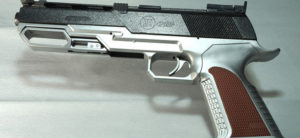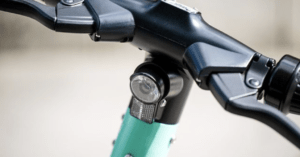Everything You Need to Know About Nevada’s Collateral Source Rule

For personal injury cases, Nevada state courts enforce a policy known as the collateral source rule. The rule states that when somebody has been injured by another, the injured party (plaintiff) has the right to recover full compensation from the person at fault (defendant), even if the plaintiff has other means of recovering money, such as personal insurance. Essentially, this rule is meant to ensure that defendants aren’t let off the hook for negligent behavior just because the plaintiff was prudent enough to carry insurance.
What Does “Collateral Source” Mean?
When you’re injured in an accident–let’s use auto accidents as an example– the person most responsible for the accident will typically pay for your damages. That is known as a primary source of recovery. Any other means of recovering money for your losses is considered a collateral source.
Most of the time, your own auto insurance would be the collateral source. In other words, your insurer will pay at least part of your expenses like normal, even though the defendant is still your main focus in terms of recovering compensation.
How the Rule Applies in Nevada
For a free legal consultation, call (725) 900-9000
As with any legal topic, states differ in their laws regarding collateral sources. However, Nevada law asserts that a plaintiff has the right to collect full compensation from the defendant that caused their injuries. This is true even if the plaintiff has a collateral source or sources that will also supplement expenses.
Under this law, defendants are barred from disclosing a plaintiff’s collateral source(s) to the court or jury, and they cannot subtract the money received from these sources from their settlement bill. In other words, the bill is addressed to the defendant alone; any other money the plaintiff receives does not reduce or change the amount the defendant must pay.
Applying Collateral Source Law to a Hypothetical Example
Click to contact our personal injury lawyers today
Let’s imagine that Driver A and Driver B get into a car accident and Driver B is responsible for it. Driver A then files a personal injury against Driver B to recoup damages, and it is determined that those damages amount to $20,000. While the case is ongoing, Driver A’s personal insurance pays them $10,000, leaving $10,000 left for the defendant. However, as we’ve established, that is definitely not the case in Nevada–in this case, Driver B would still be on the hook for the full $20,000.
What’s the Overall Purpose Behind Nevada’s Collateral Source Rule?
Complete a Free Case Evaluation form now
Basically, the collateral source rule was put in place so those accident victims aren’t denied justice just because they have other means to recover money. Nevada’s courts and legislatures have made it clear that they don’t believe it is fair that a defendant should have a reduced punishment purely on the basis that the plaintiff decided to carry insurance. Every punishment is tailored to a specific incident, and it must be shouldered by the defendant alone.
Additionally, defendants cannot disclose any collateral sources a plaintiff may have so that the people responsible for adjudicating the case are not influenced by that information. We’re all human, and it’s not hard to imagine that plaintiffs would regularly be awarded less every time a collateral source was involved. Nevada has attempted to eliminate this bias as much as possible by not allowing this evidence in court.
Notable Exception: Workers’ Compensation
A rule wouldn’t be a rule without exceptions, and the most notable exclusion to Nevada’s collateral source rule would be workers’ compensation claims. In those cases, the defendant is allowed to disclose whether or not the accident victim has received benefits from workers’ compensation.
However, the parties in charge of the case are instructed to consider the full extent of the victim’s damages when formulating a settlement, just like normal. They are also notified of the fact that the court uses a portion of the settlement funds to repay the insurer or agency for the amount already given to the plaintiff.
No Insurance Subrogation for Auto Accidents
Certain states permit insurance subrogation, in which an insurer that pays compensation to the plaintiff may turn around and sue the defendant for reimbursement. Nevada law does not permit this in car accident cases. Their assertion is that accident victims can recover from both their own insurance and the defendant, and so insurance companies have no right to try and recoup money that they should have paid to their faithful shareholders anyway.
Contact Trusted Personal Injury Attorneys
If you have further questions about collateral source rules or would just like to discuss potential legal action, call the award-winning personal injury attorneys from Van Law Firm right away. We’re standing by around the clock to assist accident victims in their time of need. We’ve recovered over $150 million dollars for our clients in a decade of service, and we’re just getting started. Call our office nearest you now to learn more.
No obligation consultations are always free.
Let Us Help You! Call Now: (725) 900-9000


